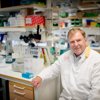Fritextsökning
Artiklar per år
Innehållstyper
-

Partial court victory for entrepreneur who lost his company
Swedish life science entrepreneur Mikael Kubista has won the first round against a law firm that he, along with other co-owners, sued for negligent advice in connection with losing his company, Tataa Biocenter.
-

Anna Törner: ”If I fall seriously ill, I’ll move to Finland”
”It is both undignified and undemocratic that cancer patients must travel to Finland to uphold a façade of fairness that does not truly exist”, Anna Törner writes in a column.
-

In search of Marcel Proust's lost health
A great writer, but also a weak person and a hypochondriac. That has been the usual image of Marcel Proust. But the pediatrician and literary scholar Carl Lindgren paints a partly different picture in a new book about the French master's life, health
-

Investigations against AstraZeneca: ”Chinese interests may be behind them”
Why are there several investigations against AstraZeneca employees in China right now? Life Science Sweden continues to seek answers.
-

Orbán's extended arm becomes health commissioner in the EU
Hungarian Olivér Várhelyi may soon become the most influential official for the healthcare and pharmaceutical industry in the EU. Várhelyi, who is close to Hungarian prime minister Viktor Orbán, is seen as a controversial figure due to his opposition to abortion and for calling EU members ”idiots.”
-

Roche’s Genentech terminates licencing deal with Norwegian biotech
Genentech is ending a license collaboration with Norwegian biotech Nykode Therapeutics regarding a clinical stage cancer vaccine program.
-

The new Swedish life science strategy – “It will consolidate Sweden as a leader”
Clinical trials and precision health are emphasised as key areas in the new national life science strategy.
-

”The importance of stratification in a statistician’s August kitchen”
Ingrid Lönnstedt writes about an experiment of her own at home and about what lessons can be learned from it, in a science column.
-

AstraZeneca to use American AI platform for cancer trials
In a collaboration AstraZeneca will use an AI model from Israeli-American biotech Immunai to streamline its clinical trials in cancer.
-

Anna Törner: ”Mom, do you think you’ll ever get married again?”
”I realize I’m slowly descending into that familiar statistical rabbit hole, where life’s biggest uncertainties are reduced to point estimates and confidence intervals”, Anna Törner writes in a column.
-

Ingrid Lönnstedt: ”The confidence interval and its width”
Always keep an eye on the width of your and others’ confidence intervals, writes Ingrid Lönnstedt in a science column.
-

Anna Törner: Yes, I Am Sick, But Not Weak
”People often say that someone who is ill only has one wish—to get better. But I think that is not true. Someone who is ill also longs to be understood, to be respected, to not have their identity overshadowed by their condition”, writes Anna Törner in a column.
-

Danish biotech to buy struggling American oncology company
Danish drugmaker Pharmacosmos has agreed to acquire American pharmaceutical company G1 Therapeutics in a deal that amounts to 405 million dollars.
-

Danish obesity success causes recruitment problems in southern Sweden
The substantial expansion of Danish Novo Nordisk is affecting companies in southern Sweden, which are finding it increasingly difficult to compete for attractive staff.
-

EMA review confirms a risk of new cancer after CAR-T
CAR-T cancer therapies can, in rare cases, induce secondary cancers. The European Medicines Agency (EMA) now recognises this and requires a warning label to be attached to the product information and patients to be followed up for life.
-

Sofia Wallström is Lif's new CEO
Sofia Wallström has been appointed as the new CEO of the industry organization Lif, the trade association for the research-based pharmaceutical industry in Sweden.
-

Samuel Lagercrantz: “Companies that do this successfully will take the lead”
The development of new medicines and medical technologies should not focus too narrowly on prolonging life. It is equally important to develop treatments that relieve pain or eliminate painful symptoms, writes Samuel Lagercrantz in an editorial.
-

Forskaren in Hagastaden now inagurated
The real estate company Vectura's life science center in Hagastaden, Forskaren, is now inaugurated. The opening was attended by people from the industry, politicians and royalty.
-

KI’s freezer fiasco investigated: A chain of failures
A chain of combined technical and organisational shortcomings caused the freezer breakdown at the Karolinska Institute during the Christmas holidays, destroying more than 47,000 samples. This was the conclusion of an internal investigation.
-

Jan Holmgren to receive award for the development of cholera vaccine
Researcher Jan Holmgren is being awarded for the development of the first effective drinkable cholera vaccine. The award is given by the International Vaccine Institute (IVI) and vaccine company SK bioscience.
-

”We need compatibility“
Penilla Gunther, founder of Fokus Patient and chair of the European Patient Safety Foundation, hopes that the forthcoming life science strategy will focus on efficient and secure management of patient data and equal access to medicines.
-

Anna Törner: ”Orphan Designation – the "petite robe noire" of drug development”
It is easy to cling to various regulatory incentives, like orphan designation, and other expedited pathways, without understanding what they truly mean or whether they are indeed right (or wrong) for the current project, Anna Törner writes in a column.
-

Marie Gårdmark: ”Interchangeable biological medicines – soon in a pharmacy near you?”
”Generic competition is an effective way to push down drug prices, but it has not worked equally well for biosimilars. Biosimilars require more time to gain market share compared to generics, and new biosimilars do not always lead to lower prices” writes Marie Gårdmark in a column.
-

To build trust, one must be able to say “I don’t know” – whether human or AI
Will AI strengthen or break down trust? It depends on whether we can understand and accept its limitations, and our own, writes Sarah Lidé in a column.